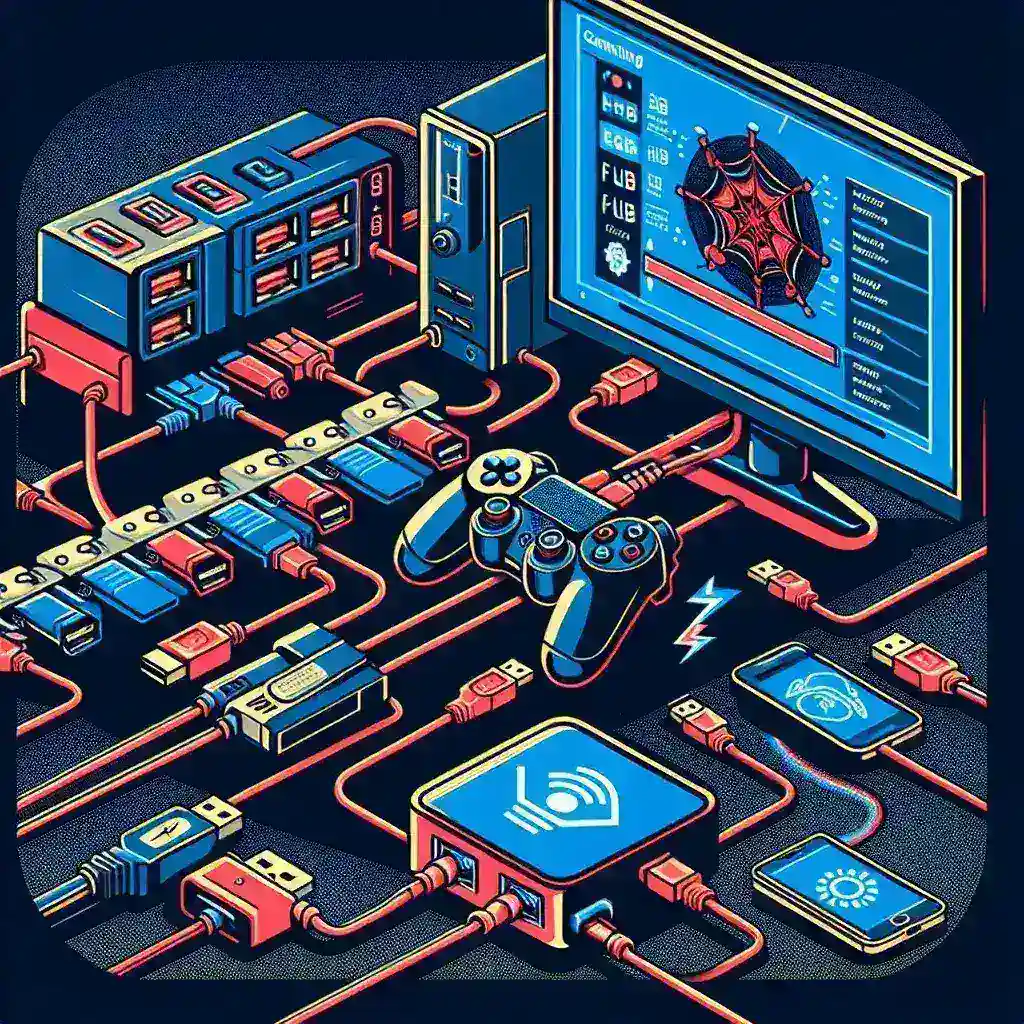Why Does My Gaming Controller Lag When Connected Through a USB Hub?

Gaming is an immersive experience that often relies on the precision and responsiveness of your controller. However, many gamers face the frustrating issue of lag, especially when their gaming controller is connected through a USB hub. Understanding the reasons behind this lag and knowing how to address it can significantly improve your gameplay. In this article, we’ll delve into the causes of controller lag when using a USB hub and provide solutions to enhance your gaming experience.
| Causes of Controller Lag | Effects on Gameplay |
|---|---|
| Polling Rate Issues | Delayed input response |
| Insufficient Bandwidth | Stuttering and skipping actions |
| Driver Conflicts | Inconsistent performance |
| Power Supply Limitations | Disconnection or reduced functionality |
| Hub Quality | Higher latency |
Understanding Lag
Lag is the delay between when you input an action on your controller and when that action registers in the game. This can be especially detrimental in fast-paced games where split-second timing can make all the difference. Generally, lag can manifest in several ways:
- Poor reaction time
- Unresponsive controls
- Stuttering gameplay
When using a USB hub, several factors can contribute to lag, making it essential to understand each aspect thoroughly.
Reasons for Controller Lag via USB Hubs
1. Polling Rate Issues
The polling rate refers to how often the controller sends its data to the computer. Typically, controllers have a standard polling rate of 125Hz to 1000Hz. A lower polling rate can lead to noticeable lag because the PC receives updates less frequently.
2. Insufficient Bandwidth
USB hubs can sometimes struggle with bandwidth, especially if multiple devices are connected. If the hub doesn’t have enough bandwidth to handle all connected devices simultaneously, the controller’s responsiveness may decrease.
3. Driver Conflicts
Driver compatibility can also play a role in lag. If there are conflicting drivers due to multiple device connections, the performance of your gaming controller may deteriorate, leading to inconsistent input performance.
4. Power Supply Limitations
USB hubs, particularly unpowered ones, may not provide sufficient power to all connected devices. If the controller is not receiving enough power, it may experience disconnections or reduced functionality, which can contribute to perceived lag.
5. Hub Quality
The quality of the USB hub itself matters significantly. Cheaper hubs may not be capable of effectively managing multiple connections, resulting in higher latency and reduced performance.
How to Reduce Lag When Using a USB Hub
1. Upgrade Your Hub
If you’re using a low-quality USB hub, consider upgrading to a powered or high-quality hub that can handle bandwidth more effectively. Look for USB hubs from reputable brands that are specifically designed for gaming.
2. Reduce the Number of Connected Devices
Limiting the number of devices connected to the USB hub can improve performance. Ensure that only essential devices are connected, which can free up bandwidth for your gaming controller.
3. Adjust Polling Rate
Some controllers allow you to adjust the polling rate via software. If your controller supports this feature, try increasing the polling rate to enhance responsiveness.
4. Update Drivers
Keep your USB and gaming controller drivers updated to avoid conflicts and optimize performance. Check the manufacturer’s website for the latest drivers and install them as needed.
5. Use USB Ports Directly on the Computer
Whenever possible, connect your gaming controller directly to the USB ports on your computer instead of through a hub. This can eliminate potential delays caused by the hub.
Testing Your Setup
After making adjustments, it’s crucial to test the performance of your gaming controller. Depending on your gaming platform, execute the following tests:
- PC: Use a dedicated response time testing software to check the input delay.
- Console: Monitor gameplay for responsiveness in fast-paced games; consider playing a game known for precision.
Conclusion
Experiencing lag in your gaming controller when connected through a USB hub can be a vexing issue, but understanding the root causes can lead to effective solutions. By upgrading your equipment, managing connected devices, and ensuring that everything is updated, you can significantly enhance your gaming performance. Remember that while technology can sometimes create hurdles, a well-maintained setup can lead to an enjoyable and immersive gaming experience.
Leave a Reply